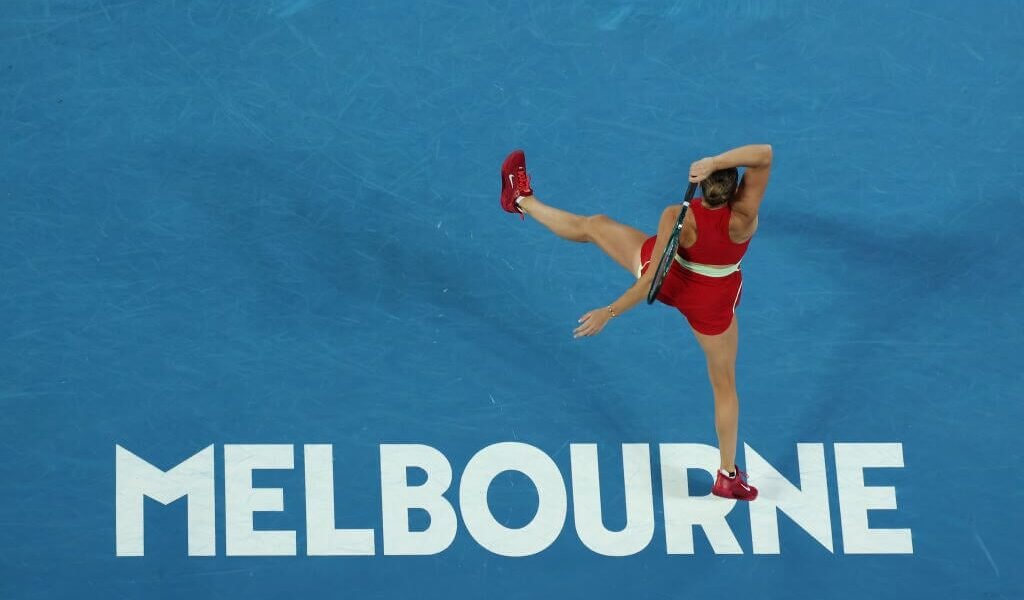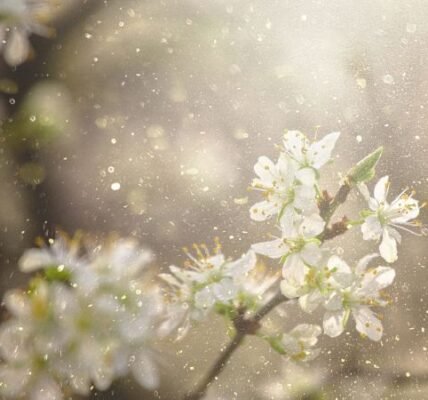Aryna Sabalenka wins Australian Open for second time, defeating Zheng Qinwen – The Athletic
Aryna Sabalenka won the Australian Open with a decisive, straight sets win over Zheng Qinwen, a fitting end to a fortnight that established her as the class of her sport at the moment, even if that’s not what the rankings say.
For the seventh time in as many matches, Sabalenka, a 25-year-old power hitter from Belarus, overwhelmed her opponent for much of the match, blitzing Zheng with her booming serve, her punishing forehands, and pounding backhands that, when she isn’t sending them off the court or into the net, are nearly impossible for her competition to handle.

Sabalenka dominated on serve and from the back of the court (Phil Walter/Getty Images)
Sabalenka finished off the first set with a crushing serve out wide, and clinched her 6-3, 6-2 win on her fifth match point with a ripping crosscourt forehand after just 76 minutes.
Sabalenka said she was edgy and anxious before the match, but those emotions went away as she walked into Rod Laver Arena, a far different experience from her two previous Grand Slam finals.
“As soon as I stepped on the court I felt like I was in control,” she said as she sipped a glass of champagne.
It was Sabalenka’s second consecutive title at the Australian Open, the first time a woman has won back-to-back Grand Slam titles on a hard court since 2014. In a sport where consistency at the top has been rare, Sabalenka has been a beacon of steadiness in the most important tournaments.
Beginning with the U.S. Open in 2022, she has made at least the semifinals of every Grand Slam. Since the start of last year, she has played in three Grand Slam finals, won two of them, and was a point away from making a fourth.
Her consistency is especially remarkable because not long ago Sabalaenka seemed as lost as a top tennis player could be. For months during the early parts of 2022, she had the most painful case of the yips, a the nickname given to psychological blocks that prevent athletes from performing the most basic actions.
In Sabalenka’s case, she lost the ability to serve, pumping 21 double faults in one match, 18 in another. During a win at the 2022 Australian Open she celebrated “only” hitting 10. No one then could have predicted the run that would begin in less than a year, or how it might come to fruition.
If you’d like to follow our fantastic tennis coverage, please click here.
Sabalenka, a player everyone knew had the talent and athleticism to become the best player in the world, basically told her coaches she didn’t want to talk about her serve anymore. She fired her sports psychologist, deciding it was going to be up to her and only her to figure it out. And she certainly did.
She also began speaking publicly about the emotions that weighed on her. Sabalenka’s father and first tennis coach died suddenly in 2019 when he was just 43 and she was just 19. She had promised him she would win a Grand Slam by the time she was 25. That birthday was approaching. Time was running out, and in a sense, her grief was coming out on the tennis court.
Sabalenka said she decided to start speaking about her grief and the pain it caused in hopes of helping other people who have lost a parent when they are young. It wasn’t, but the unleashing of all those raw emotions seemed to liberate her and allow her to swing more freely than she ever had.
After the U.S. Open last year, she was the No 1 player in the world. Iga Swiatek of Poland seized it back at the end of the season. But Swiatek struggled through her first three matches in the year’s first Grand Slam, albeit against a tough collection of opponents, and failed to make the second week, while Sabalenka cruised, regardless of who stood on the other side of the net.

Zheng struggled to get into the match (DAVID GRAY/AFP via Getty Images)
In the semifinals she avenged her loss in the U.S. Open final to Coco Gauff. Up next was Zheng, the rising 21-year-old from China who, during the last six months, has begun to fulfill the promise that so many have predicted for her in recent years — a player who could succeed Li Na as China’s next tennis champion. There were large pockets of Chinese fans screaming for her and waving China’s flag from the first ball, doing their best to raise Zheng higher.
“I started pretty slow and I didn’t play my tennis game,” Zheng said. “She (Sabalenka) is a really aggressive player. She takes away the comfort of the other player.”
Zheng may one day be able to do that to top players as well. But in addition to facing a peak version of Sabalenka, Zheng struggled to handle the nerves of her first Grand Slam final at the end of a tournament where Sabalenka was the only player the 12th-seeded Zheng faced in the top 50.
Sabalenka figured to be a whole different level of foe, and she was.
She became the first woman to woman to win back-to-back Australian Open titles since 2013. Sabalenka, like Victoria Azarenka is from Belarus. It is a country whose players have had to navigate a tenuous position in tennis since Russia — with support from Belarus — invaded Ukraine in 2022. With the exception of tournaments in Great Britain, players from Russia and Belarus have been allowed to continue competing, but not under their flags or in team competitions and symbols of their country are prohibited in the sport.
Sabalenka, who lives mainly in Miami, has been pressured repeatedly to come out against the war, something that can be dangerous for anyone who still has family living in Russia or Belarus. She finally broke her silence on the issue in Paris last year at the French Open following multiple confrontations with a reporter from Ukraine, after which she skipped two post-match news conferences.
“I don’t support war, meaning I don’t support Alexander Lukashenko right now,” she later said, referring to the president of Belarus.
Sabalenka had been supportive of Lukashenko in the past, appearing in a now notorious video with him at New Year’s Eve celebration before the invasion but long after Lukashenko had crushed an opposition movement accusing him of rigging an election to retain power.
It was the start of a tumultuous summer for Sabalenka. She lost from match point in the semifinals at that French Open, then lost a one-set lead in the semifinals of Wimbledon, then did so again in the finals of the U.S. Open.
Sabalenka said Saturday that the loss to Gauff pushed her to try to make improvements in her game.
Anton Dubrov, her coach, said they spent the fall and the off-season trying to develop additional weapons to give her a fallback plan if her aggressive strategy of smacking balls through the court went awry.
“We were trying to find a way we can still be able to play our style even if you’re not playing the best,” Dubrov said on Saturday. “We try to work more on the volley side and drive volley to go more to the net. Just push yourself to go more in front because if you cannot play on the baseline, if you cannot hit the winners from the baseline, as usual, you can find some other ways.”
With the help of her performance coach, the wisecracking Jason Stacey, they have also tried to keep the atmosphere around the team light and playful.
The past two weeks, Sabalenka has taken both approaches to new levels. In so many matches and once again on Saturday, she moved forward in the court and finished points even when she was playing just fine from the baseline, taking time away from Zheng and Gauff and everyone else she toppled.
In the warm-up and training rooms on the lower levels of Melbourne Park, she wrestled with Stacey and Dubrov over possession of medicine balls, and showed off her flexibility by taking a cup off Stacey’s head as he stood upright with a roundhouse jujitsu kick.
On match days she signed his bald scalp with a black marker, and wrote Stacey’s name on his ears in case he got lost. The more goofing around, the better.
“It’s very important,” Stacey said. “Just from an emotional standpoint, from a neurological like, more neuroscience-based, how our brains work and just having those, those times to just, I mean, people learn better and they pay more attention and they’re a bit more fresh, they might have a little bit of fun. You have a bit of creativity.”
Sabalenka said all the playtime helped her stay focused on the court.
“Keep it simple, keep it fun,” she said.
For now, no one is going to accuse Sabalenka of playing all that creative a style of tennis or not having moments when her mind can become frayed. But lately, tennis for her has been about little more than hitting the ball hard, and if that doesn’t work, hitting harder, and if that doesn’t work, hitting it hard while it’s still floating in the air close to the net. Sabalenka rarely sees a ball she does not want to pummel.
After two weeks of having her way with the field that ended with her raising big silver trophy, she has little reason to think she needs to do anything else. She’s having plenty of fun.
(DAVID GRAY/AFP via Getty Images)


